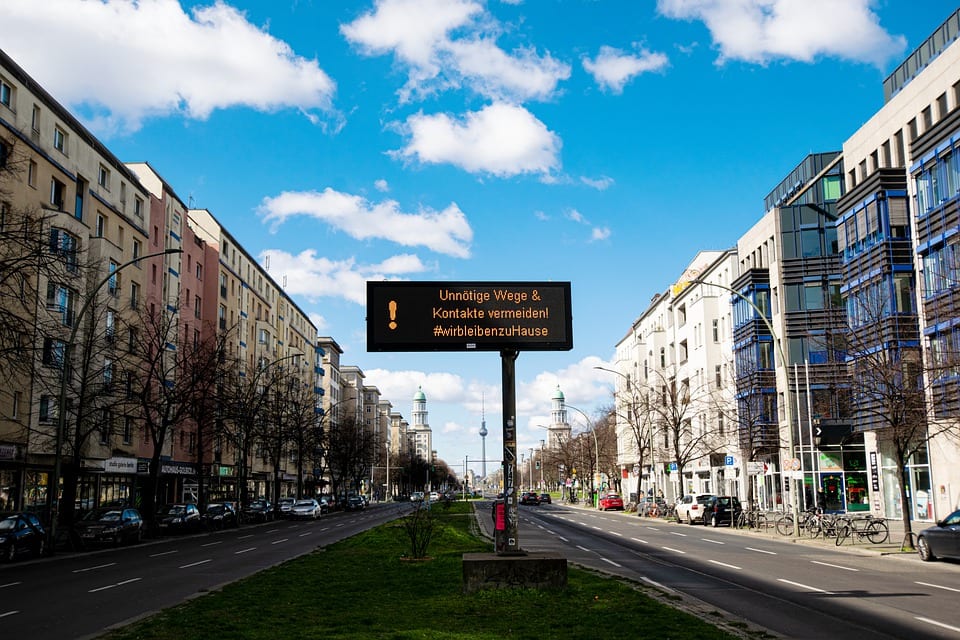Germany has extended its travel ban on all commercial transport from the U.K. and South Africa until at least January 20.
The decision was made after confirming the new coronavirus strain, first detected in the U.K, has proved to be 70% more infectious than other variants.
The Health Ministry announced the new ban covers “passenger traffic by train, bus, ship and flights directly from these countries.”
This extended restriction aims to help tackle the second wave of infections, which is already threatening to overwhelm the country’s health system.
On January 5, Germany’s state and federal governments agreed to extend and tighten coronavirus lockdown rules in the country.
This new travel ban joins the long list of current lockdown regulations, that go from school closures to not drinking alcohol in public. These restrictions are set to be in effect until at least January 31.
German Chancellor Angela Merkel said at a press conference that the new highly-infectious strain is making the situation more pressing.
“We must be especially careful now. We are in a new and extraordinary situation.”
Entry restrictions to the country have also tightened. As of now, all arrivals are required to present proof of a negative PCR, LAMP, TMA or antigen test taken 48 hours before arrival. In addition, antigen tests must meet certain quality standards.
Passengers travelling from the U.K or South Africa for essential reasons are no longer allowed to take a test upon arrival or after entry. German authorities have requested transport companies to only allow travelers who present a negative test at the start of their journey.
Besides, those travelers must quarantine for 10 days, the same way arrivals coming from a risk zone must do. This quarantine can be ended with a negative test taken five days in at the earliest.


